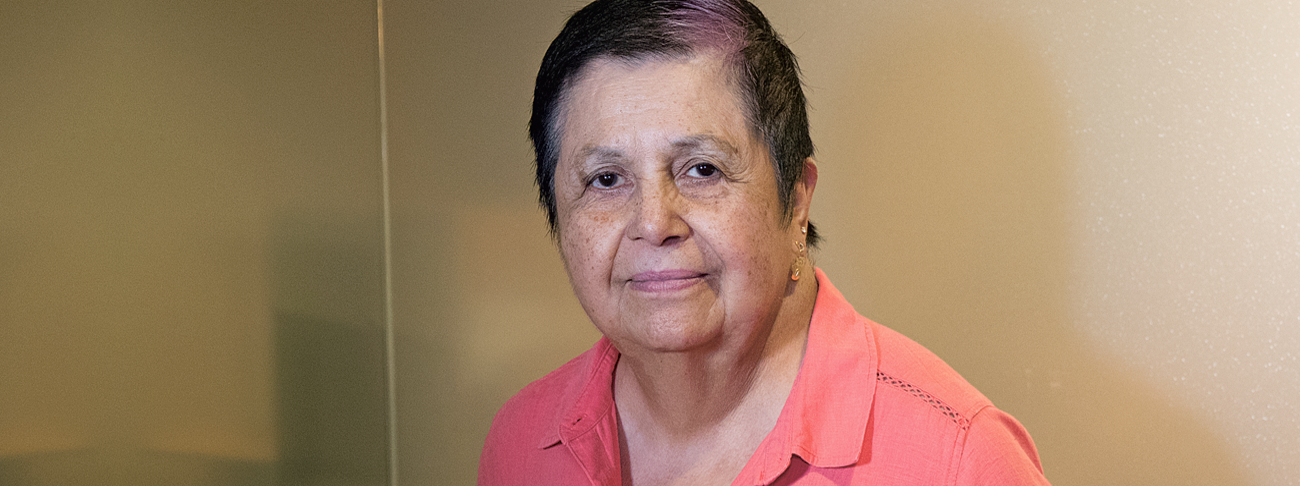
When Sharon McIvor introduces herself, she is “a First Nations woman and a member of the Lower Nicola Indian Band.” She is also a lawyer recognized not only for teaching excellence at the Nicola Valley Institute of Technology in Merritt, BC, but also by Canada’s Governor General for her 30-year battle for equality for Aboriginal women. The Bulletin spoke with Sharon about Indigenizing the academy.
Where are your roots?
I teach at a small college in Merritt. It’s the only First Nations public post-secondary institute in British Columbia. I was born and raised in the community and have lived there my entire life. My mother and father were born there and my mother’s family, as far back as we know, were all born within a 20 km radius of each other. My children and grandchildren have all been born in the community as well, so we’ve got long roots and lots to look forward to for our people in the future.
What does Indigenizing the academy mean to you?
A lot of work to begin with. Indigenizing the academy is basically trying to undo a lot of the learning that people have had. I’m talking about our people, First Nations people of Canada. We’ve learned that in order to succeed we have to be able to get into the academy, not only post-secondary, but also K-12. The system is designed to socialize you to function in the middle, upper-class white world. The people who colonized Canada knew that in order to succeed, they had to disempower the Indigenous people already here and they had a very good way of doing it.
You weren’t in a residential school. What were your experiences in a public high school?
It was unusual for someone in my time to go to and finish high school. I saw the counselor who was to advise me, based on my ability, on what I could do after graduation. I said I wanted to be a teacher and she told me in no uncertain terms that I was reaching too high. Fast forward: we’re in exactly the same position today. All of the standards in the academy are still the same, based on the knowledge and aspiration of white, middle-class people, many of whom have no capacity to open their minds wide enough to understand that there’s a different world view out there that is equally legitimate.
How do we open their minds?
Part of it is talking to them and I’ve been doing that for a long time. It’s discouraging though. I’ve taught in institutions across the country, and people are not willing to see another way. It’s frustrating that many Indigenous people who are educated have been socialized to think exactly the same way. But the other view is that the K-12 system is destructive to Indigenous and non-Indigenous kids alike. They are taught from day one about their deficiencies.
What’s the remedy for that?
A different way of teaching. I was taught from day one that I was my own boss. If I was told to do something, I would have to think about it first because I was ultimately responsible for myself. When my son was in kindergarten, I got a call because they said he was so tired he couldn’t concentrate. This surprised me because I knew he got lots of sleep. But they insisted he was spacing out, not paying attention. I realized he was acting as if they didn’t exist, because in our way if someone’s being disrespectful, you act as if they don’t exist and when they start being respectful, you acknowledge them. Another lesson is to never compare yourself to someone, because by doing that, you put your own gifts in jeopardy. And there is no labeling and no comparison and definitely no standards.
What argument do you make to convey the importance of this?
I can point to one of the recommendations of the Truth and Reconciliation Commission — which the University of Winnipeg acted immediately on — a mandatory Indigenous course requirement. But this isn’t happening everywhere because administrators just can’t open their minds. We think that if Canadians and students understood the truth, they would take a different view. I have students who have no knowledge of their history. They go through stages of learning and become outraged that it happened and they didn’t know. What it does to them as First Nations individuals is make them realize that the position they are in right now is not of their own making. Indigenizing the academy is a long road and the biggest obstacles are the people standing in the way who control the academy.